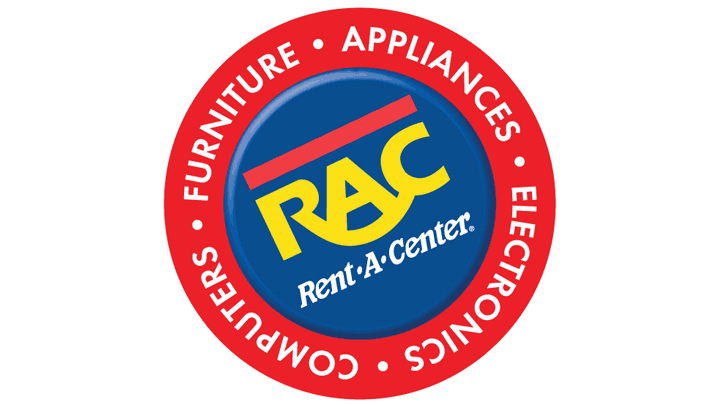
Growing up in a middle class family, I never had any concept or awareness of the Rent to Own retail industry. I remember seeing the ads on TV for places like Aaron's and Rent A Center, but because my parents never utilized the services of these companies, I honestly had no idea how they worked.
I was lucky.
Thankfully, my parents were never cash-strapped or impulsive enough to utilize the services of these retailers. It was only later in life that I would fully understand how these companies work, and how they royally screw over their customers. Unfortunately, I realized this because...
I ended up working for them.
I had just returned from an internship in Taos, NM, where I had learned the concepts of sustainable building by working on Earthships. I decided to move back to the small college town of Mt. Pleasant, MI, where my girlfriend was finishing up school.
Anyone who has ever been to Mt. Pleasant knows the irony of the town's name: it is neither pleasant nor mountainous. As much as I didn't want to move back, I made the sacrifice to be close to my partner.
Though I had a bachelor's degree, the job opportunities were scarce. Seeing as I wanted to save up enough money to buy a hatchback and travel the country for a long period of time, I needed to work as much as possible, and at that time I was basically flat broke.

Rent-A-Center was hiring.
They paid decently and offered 48 hours of work per week. Perfect. Just what I needed. I took the job with a minimal understanding of how the business worked. It didn't take long for me to realize how absurd their business model is, and how this industry has to be one of the least ethical in all of retail.
For those unfamiliar with the rent-to-own industry, let me explain how it works. Stores sell products ranging from televisions, electronics, furniture, and appliances at weekly, bi-weekly, or monthly rates.
Customers can have absolutely dreadful credit, and don't need to commit to anything other than the amount they pay for. If they want to return the product after a week, they can do it without any obligation to continue paying. For people interested in trying something before buying, I suppose utilizing a rent-to-own store actually makes a bit of sense.
And that's where the logic ends.
If a person intends to actually purchase any product, paying the weekly price is totally insane. Sure, it's nice to be able to get a 50-inch plasma television for just $20 out the door, but when you have to continue paying that amount for upwards of two years, the math doesn't add up.
What would normally cost around $500 at a regular retailer could end up costing the customer about $1500 (I've seen worse than that, as well). These companies usually offer an early purchase option to save money, but the cost would likely still be close to a grand for that same television. The customer is still getting screwed, but in this scenario, it's perhaps just the tip and not the whole shaft.
As you can imagine, the clientele weren't always the most well-educated individuals of the bunch. Many customers were poor or on some form of welfare. The percentage of people with substance abuse issues and criminal histories were high.

That's not to say there weren't any decent people that rented from us. I don't mean to demean anyone that used our services, because some people were working class folks that just needed an appliance, or felt like it was worth the premium to have certain items now instead of saving to pay for them later.
But back to the business model...
After renting an item out to the customer, I was responsible for delivery and setup of said item. Hey, no problem there. But something I was also responsible for was the collections side of things. Every Saturday, weekly payments would come due. We call you once on the day that you are due, and then upwards of three times a day every day after that until you pay.
If you make no commitment to pay within 7 days, we will start to 'run' your account, which means that we show up at your house and hand out M&Ms, which means you give us money or you give us the merchandise. I dealt with a ton of people who had no intention of giving us either, which meant a lot of incessant knocking, calling any reference they had given on their application, and sometimes even calling the police.
I quickly learned the police were useless to help us retrieve merchandise, even if the customer had threatened our lives. They basically left us at the mercy of the customer, who were a lot of the times utterly unhinged psychos.
My boss had an incident at the Flint RAC where they were attempting to collect on a customer, and the customer straight up said to him that they were going to shoot them if they didn't leave. Of course, he called the police, and the police literally replied with "Until they start shooting, we can't do anything about it."

As employees, we were pressured by upper management to hit certain sales figures each day and week. This often meant renting to people who had been dreadful customers, people who were guaranteed to never pay their bill on time , merely as a way to hit sales figures.
Working at RAC made me realize that throwing money at poor, uneducated people will not solve their problems. About half of our customers were on some form of welfare. The biggest welfare recipients (and biggest customers) were Native American tribe members, who received a staggering $2500 every two weeks.
You would think with this income they would be able to pay full price for items at an actual retail store, but alas this was not the case. Combine a lack of education with serious substance abuse issues, and you have the recipe for poor financial choices.
Obviously, white culture has done this group no favors, and the reasons why money won't fix Native American's problems is a larger issue than I'm willing to go into at this time. For this reason, I am incredibly skeptical about a universal basic income, as I tend to believe it would lead to greater social decay.
The unfortunate part of all this is that I had morals, ethics, and values.
I graduated with a degree in Social Work, and trust me, the irony was not lost on me that I was working with mostly low-income people, but on the other side of the equation. Prior to accepting this position, I rallied against the corporate state and unnecessary consumerism, and there I was supporting both of these
And after all of that, here I was, sacrificing my morals in the name of the almighty dollar. I still carry a large degree of shame over working for that company, as I felt like my words no longer carried weight. I stopped posting politically motivated material on social media afterward, and never did any street action again.

I nearly lost my sanity several days at that job.
Not just because of the fact that I was sacrificing my values, but because the company puts the workers in completely unreasonable situations.
Did I deliver 3 sets of washers and dryers in the span of about two hours by myself, in addition to running past due customers in between? Yep. Did I nearly get my genitals bitten off by an aggressive dog while running someone at their house? You bet. Did a drunken customer use the bathroom while I was installing a washing machine under his leaky pipes, and receive an accidental golden shower in the process? Unfortunately, yes I did.
Dealing with unruly customers in completely horrible conditions is all in a day's work, and when that 'work' is enriching a corporation using welfare money, it makes the job that much more nauseating. But I lived to tell about it. I suppose my penance for working at Rent A Center was...that I worked at Rent A Center.
But because I still have a guilty conscious, I will continue to share my experience with the Steemit community.